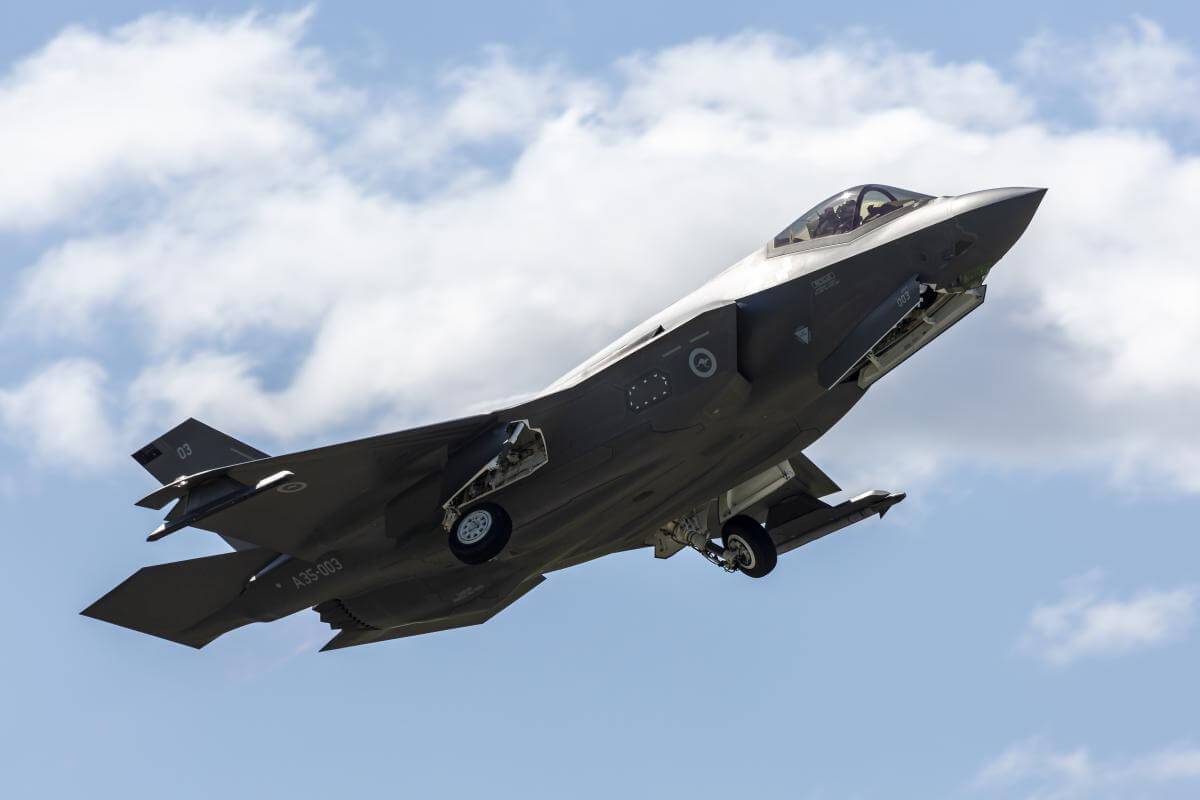Three Australian companies have been awarded new grants to help build their capacity to support production and sustainment of the global F-35 fleet.
The grants were awarded as part of Defence’s New Air Combat Capability – Industry Support Program (NACC-ISP), which has issued 45 grants worth more than $21 million since the program’s inception nine years ago.
Director General Joint Strike Fighter (JSF) Air Commodore Damien Keddie said the grants program provided funding assistance to Australian industry and research organisations to support the development of new or improved capabilities.
“It is important Defence helps to enhance Australian industry’s ability to win work in production, sustainment and follow-on development phases of the F-35 Program,” Air Commodore Keddie said.
Director Industry Kirrilee McNeill, of JSF Branch, said the most recent grants were awarded to one South Australian-based company and two Victorian companies.
“South Australian-based Axiom Precision Engineering (Axiom) has been awarded almost $810,000 to purchase a five-axis, 3m vertical CNC machine and to train staff in its operation,” Ms McNeill said.
Axiom general manager Craig Maynard said the funding would help the company increase its manufacturing capabilities and capacity.
“Thanks to the grant we are able to purchase a new cutting-edge CNC machine without having to reduce our investment in apprentices and training for the future,” Mr Maynard said.
“The CNC machine will enable us to win additional F-35 work, increasing the volume of machining performed in Australia. The five-axis machine has capacity to produce components up to 3m long, resulting in greater efficiency, helping to reduce manufacturing costs and increasing sovereign capability for Australian defence manufacturing.
“Axiom will be able to easily absorb any increase in rate production on the F-35 vertical tail program to which we currently supply.”
Victorian-based Moog Australia (Moog) has been awarded $250,000 to prepare for the sustainment phase of the F-35 Global Support Solution.
Moog managing director Bryan O’Connor said the company had been named as the Asia-Pacific’s preferred overhaul and upgrade facility for the F-35 electrohydrostatic actuator, leading edge flap actuation system and wingfold actuation system.
“The NACC-ISP grant provides Moog the opportunity to stand up this capability in Australia within the timeframes set by the F-35 Joint Program Office and JSF Branch,” Mr O’Connor said.
“This grant will be used to conduct a capability gap analysis and develop a draft Depot Maintenance Activation Plan to address the identified gaps and achieve ‘depot source of repair’ status to provide component maintenance, repair and overhaul services for the F-35 Program in the Asia-Pacific region.”
Mr O’Connor said the F-35 would play a key role in Australia’s future defence strategy and Moog aimed to build a sovereign capability to support the F-35 fleet in Australia and the Asia-Pacific.
“Standing up this capability at Moog will support the Commonwealth’s aircraft deep maintenance requirement identified in the Sovereign Industrial Capability Strategy,” he said.
“The new capability will also be leveraged across other Australian air, land and sea defence projects.”
Victorian-based A.W. Bell has been awarded $250,000 to invest at its Dandenong South casting and production facility, to improve competitiveness and reduce risk for the F-35 global supply chain.
A.W. Bell CEO Sam Bell said the grant would improve the company’s competitiveness by allowing it to continue investment in the latest technologies and upskilling of staff and in doing so, seize new opportunities both locally and internationally.
“As part of the F-35 Program, this grant will directly aid in improved capacity and capability, giving our customers even more confidence, all while helping reduce the cost of parts and ultimately helping the war fighter by employing the latest technologies,” Mr Bell said.
The grant would be used primarily to invest in new machining technology and staff upskilling. This would further enhance A.W. Bell’s capability in high-precision machining of metal parts up to one-metre-cubed in size.
Mr Bell said there would be long-term benefits to Australian defence industry capability and the global F-35 Program, as well as further opportunities for its partners and supply chain.
“These include improvements in operator skills and growth in employment opportunities in defence industry, as well as an increase in capability and capacity to machine large precision investment castings,” he said.
Air Commodore Keddie said the NACC-ISP was a tangible way Defence could help companies make a real difference – either by getting a foot in the door to the global F-35 Program or helping established companies to develop new capability.
“Either way it’s win-win. It strengthens Australian defence industry’s capacity to undertake work as part of the global program and improves Australia’s air combat capability,” he said.
Australia’s participation in the global F-35 Program has provided enormous benefit to Australian industry. So far, more than 50 local companies have shared in almost $1.8 billion worth of production contracts.
“The NACC-ISP is an important part of the government’s $200 billion investment in Australian defence industry, creating new jobs and delivering more opportunities for small business to export their capabilities overseas,” Air Commodore Keddie said.



